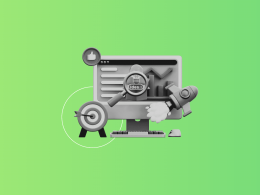One of the most common reasons for closing a business in 2020 is an incorrect assessment of its financial situation. If you want to keep the lights on nowadays, It’s important that your financial data is current and accurate and you have the tools to make sound business decisions. We’ve already had a basic small business accounting guide. So if you still haven’t read the article, I suggest you do it right now.
Today, we’ll add the freshest accounting advice to follow in 2020 and give some tips to keep accounting organized in terms of the pandemics.
1. Paper invoices are obsolete
I’m sorry to say that a large number of small businesses are still stuck in the dark ages with loads of printed paper invoices. Statistically, on average, it costs about $25 to manually process just a single invoice. If you stop using paper invoices, you almost save 3-4 hours a day. Just imagine how much time and money you can save per year.
If I still haven’t convinced you to give up manual data entries, let’s have a look at added benefits of digital billing:
- It is safer and more convenient. Invoicing software for small businesses is 99% secure from any theft and losses.
- Customers tend to support eco-friendly companies that are concerned about going green.
- You never know when the next “stay home challenge” will come. So don’t underestimate the value of digital billing.
2. Choosing up-to-date small business accounting software
Implementing accounting software can save hours by automating manual data entry and eliminating errors that might occur when data is imported into accounting manually. A report from global analyst firm IDC estimated human error is costing businesses in the US and the UK £315 per employee per year or $18 billion for each economy. So it seems not using accounting software is much more expensive than paying for it. Thus, it’s time to choose suitable accounting software depending on your situation and needs.
Types of small business accounting software:
- Online accounting software is often referred to as cloud-based or Software-as-a-Service (SaaS) accounts software. You can see your financials online anytime and anywhere. It’s usually available as a monthly or annual subscription.
Examples: Xero, FreshBooks, QuickBooks.
- Offline accounting software is usually cheaper than online. If you don’t have an internet connection, you can still access your accounts. Offline accounting software fewer suites to startups and small businesses, as they need to allow more users to access the software.
Examples: QuickBooks Desktop and Microsoft Excel.
3. Reconsider fixed cost commitments
Flexibility is a jewel of 2020 and years ahead. Long-term commitments for the business will be a one-time expense, giving value for longer durations. This hack is simple but really useful.
For example, almost all subscription-based software for small businesses, including accounting software, offer discounts when you take long-term deals. It can help to avoid frequent payments and outflow of cash. Furthermore, as a rule, long-term packages are more profitable than a monthly subscription deal.
It also ensures you can utilize services even if there is a time of crisis when your business is not making similar amounts of profit.
4. Online payments
Another must-have for small business accounting nowadays is using online payments. It is the modern way of the monetary transaction to get rid of paper-based currency usages and facilitate accounting. Because of the pandemic, most clients went online. They expect businesses to accept online payments as a basic rule.
If you don’t trust digital payments and think they’re unsafe, let’s break down these prejudices. Online payments are more secure than ever before, because of advancements in digital payments technology and the evolving cyber-security landscape.
The very yummy advantage of using online payments is the opportunity to automatically sync with accounting software and make it run like clockwork together. We’ll get to that later.
Examples of reliable payment solutions:
- PayPal payments are made using a user’s existing account or with a credit card. Money can be sent directly to an email address, thus prompting the users to sign up for a new PayPal account.
Pricing: takes 2.9% + $0.30 per transaction, has no setup or monthly fees.
- Stripe has fascinated users with its powerful and flexible API. Provides an excellent payment solution for those who would like to integrate a payment system into their projects.
Pricing: charges 2.9% + $0.30 per transaction with no setup or monthly fees.
- Square allows you to send electronic invoices, and ultimately get paid, through the Square Cash App.
Pricing: you pay 2.6% + $0.10 per transaction.
5. Automatic sync online payment systems and accounting software
The motto of 2020 is “automate everything you can”. Online payments are not an exception. It is another modern solution for small businesses to save time and money. No more disaster made by manual data entry.
The main idea is the instant import of online payments into accounting software, featuring smart data categorization and solid protection of your books from any mess with duplicates detection.
Let’s check an example on Synder: it is the Fairy Godmother’s magic wand for your finance management.
Why?
- Synder can automatically bring your transaction data from Stripe, PayPal, and Square in your QuickBooks or Xero.
- Create and send invoices and close them automatically in the accounting upon payment.
- There is a rollback function that allows undoing any erroneous data transfer in a couple of clicks.
- Synder allows you to set up a simple checkout page (powered by Stripe) right in the app and generate a payment link for it. The link can be used to receive online payments with credit cards on any sales channel that you might be using.
Conclusion
To be in the lists of successful business owners, you need to move with the times. There are ups and downs affecting the stability of cash flow. The only thing that has to stay constant is your growth. So it is important to understand the latest trends and tips for accounting. We are trying to keep our eye on the ball be of service to you in your way to success. And really appreciate your trust and glad to be helpful.






